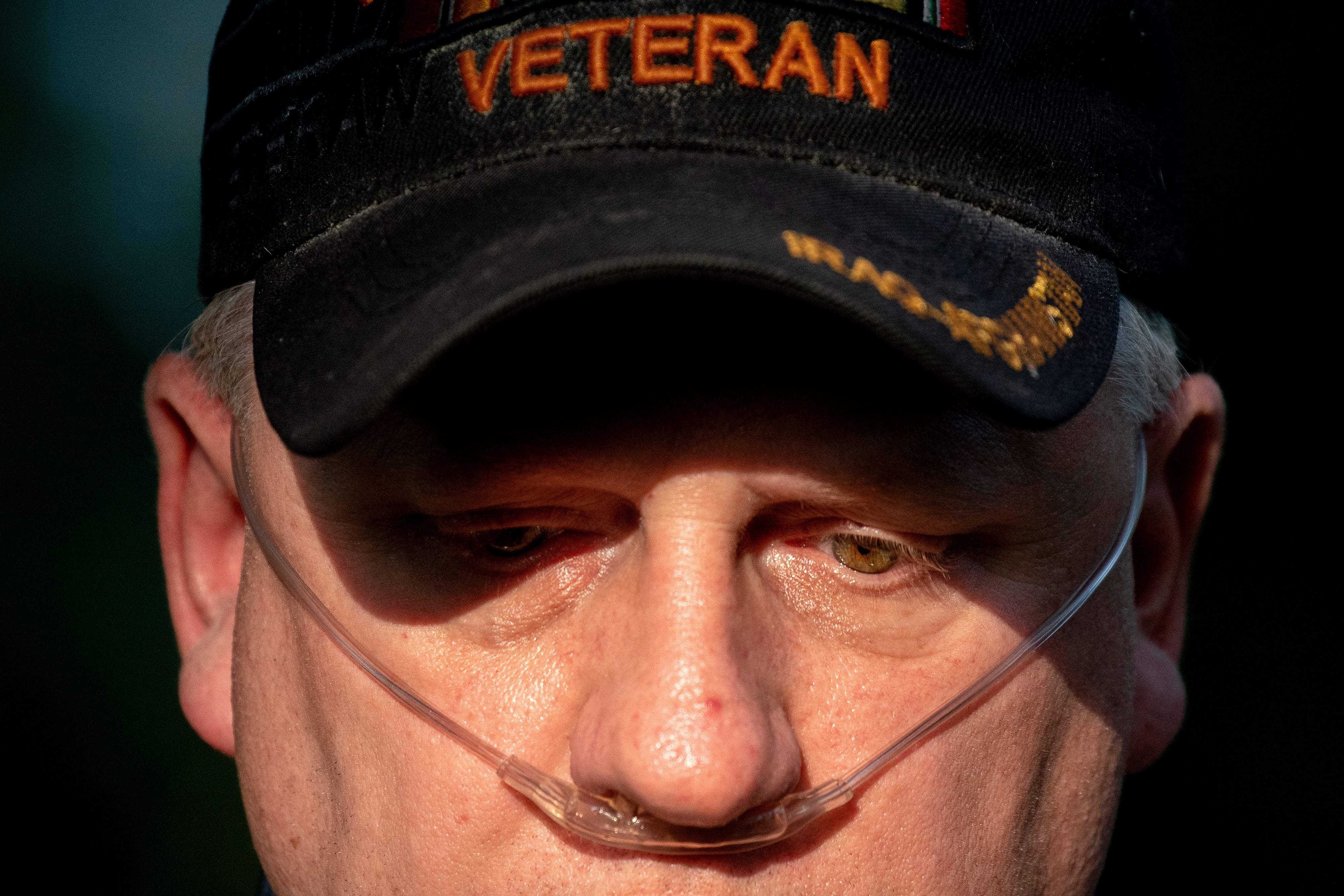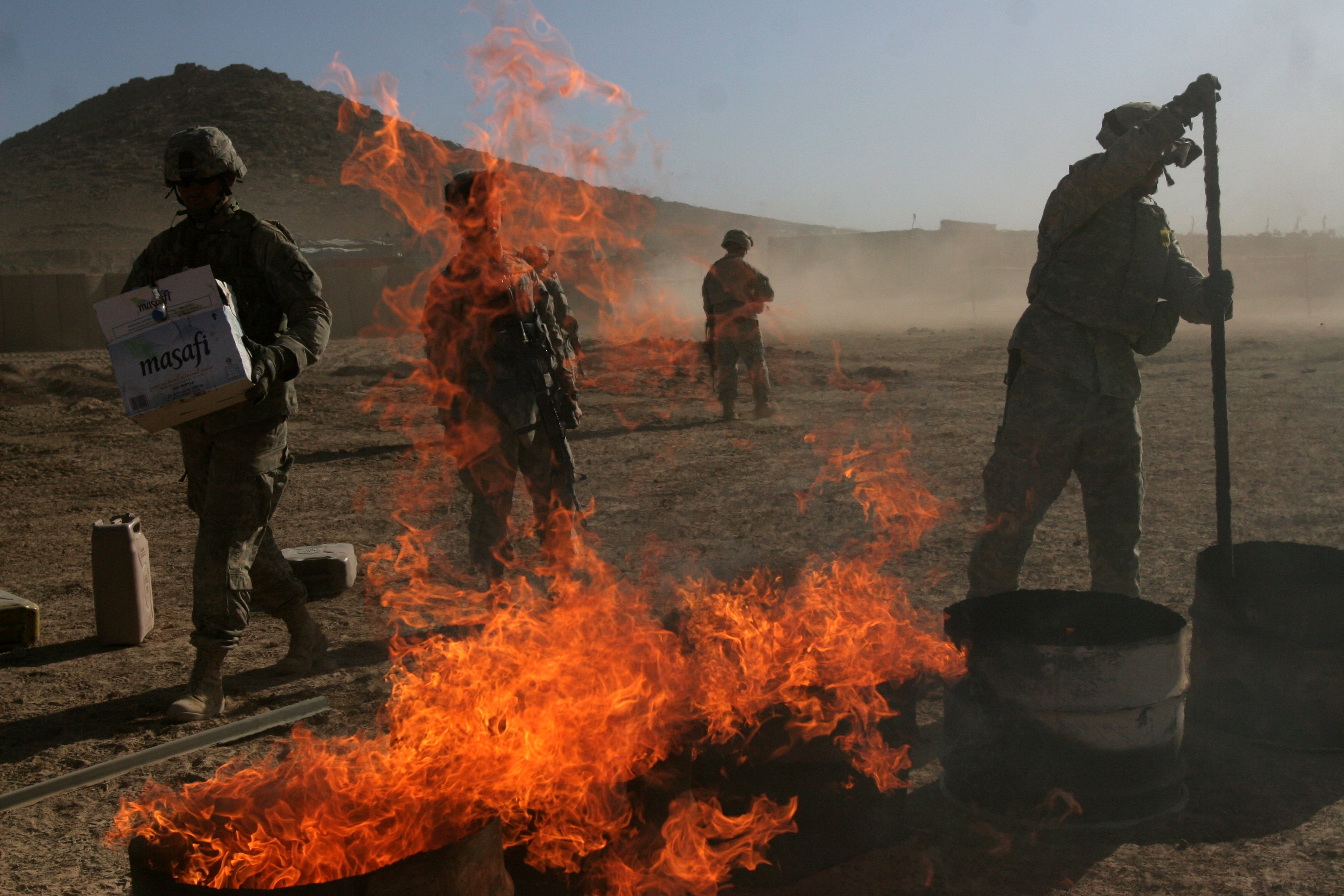Veterans Affairs officials unveiled preliminary plans to build a new cutting-edge cancer care and research center in California with Stanford University as part of new public-private partnership efforts approved as part of sweeping toxic exposure legislation approved last summer.
Construction is still years away, but VA officials touted the announcement as a sign of what the future of department health care could be: groundbreaking research that benefits not only veterans suffering from the wounds of war, but also the country as a whole.
“This will allow us to partner with every powerhouse academic center in the country, if we do this right,” said Dr. Shereef Elnahal, VA Under Secretary of Health, during a press event at the Stanford Medicine campus on Friday. “For research, training, and care delivery, it’s all one bucket of cancer care that veterans deserve.”
According to VA statistics, more than 50,000 new cancer cases are reported to department registries annually. Elnahal said because of other health issues related to military service, veterans often face worse health outcomes from those diagnoses than patients without any military background.
RELATED

Stanford officials said they conduct about 1,000 new clinical trials with cancer patients annually. The goal of the new joint center would be to bring those efforts together with existing VA research projects, and use the combined resources to speed up results and expand workloads.
“This center will provide our entire community, both veterans and non-veterans, access to cancer care that’s informed by the best possible science and research,” said David Entwistle, president and CEO of Stanford Health Care. “And what’s more, we’ll be able to serve as a beacon of hope for millions of patients and their families who will receive that difficult diagnosis.”
Details of construction timing, project costs and facility staffing still need to be worked out between federal officials and university leaders. Elnahal acknowledged the work is still in its very early stages, but said he hopes to open the doors to the new center in the next five years.
Friday’s partnership was made possible through the Promise to Address Comprehensive Toxics Act (better known as the PACT Act) signed into law last August. That measure is best known for a massive expansion of disability benefits for veterans who suffered toxic exposure injuries during their time in service, including 12 types of cancer linked to prolonged inhalation of burn pit smoke in Iraq and Afghanistan.
But the legislation also included new authorities for VA leaders to work with private institutions on research and medical care. Department officials said the Stanford project will serve as a model for more partnerships to come.
“My message to veterans is this: know that we are doing this in service of making medical care even better and more accessible to you over time,” Elnahal said.
VA officials are spending the next month conducting a public awareness campaign on the PACT Act in an effort to get more veterans to sign up for medical care and benefits. More than 660,000 veterans have applied for benefits in the last 11 months, and the department has paid out more than $1.4 billion to eligible recipients so far.
Leo covers Congress, Veterans Affairs and the White House for Military Times. He has covered Washington, D.C. since 2004, focusing on military personnel and veterans policies. His work has earned numerous honors, including a 2009 Polk award, a 2010 National Headliner Award, the IAVA Leadership in Journalism award and the VFW News Media award.





